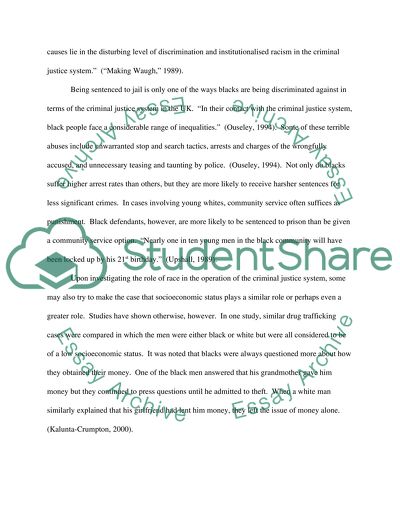Cite this document
(“Racial Injustice in UKS Criminal Justice System Essay”, n.d.)
Retrieved from https://studentshare.org/sociology/1512022-racial-injustice-in-uks-criminal-justice-system
Retrieved from https://studentshare.org/sociology/1512022-racial-injustice-in-uks-criminal-justice-system
(Racial Injustice in UKS Criminal Justice System Essay)
https://studentshare.org/sociology/1512022-racial-injustice-in-uks-criminal-justice-system.
https://studentshare.org/sociology/1512022-racial-injustice-in-uks-criminal-justice-system.
“Racial Injustice in UKS Criminal Justice System Essay”, n.d. https://studentshare.org/sociology/1512022-racial-injustice-in-uks-criminal-justice-system.


